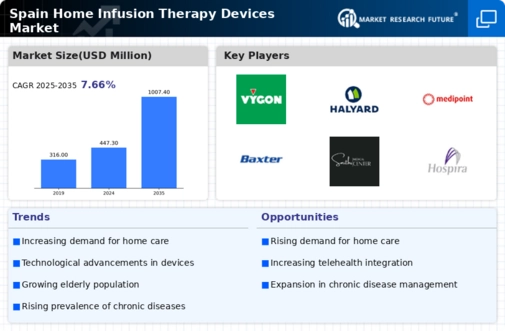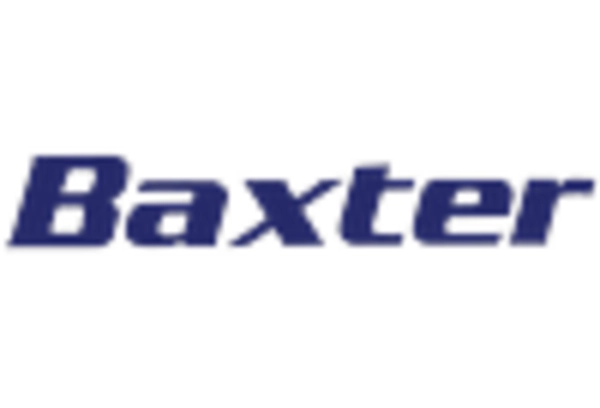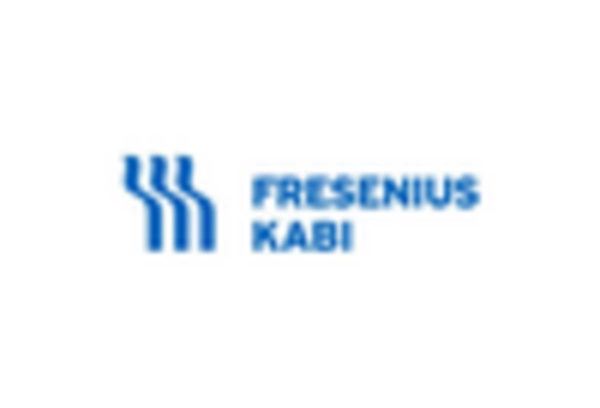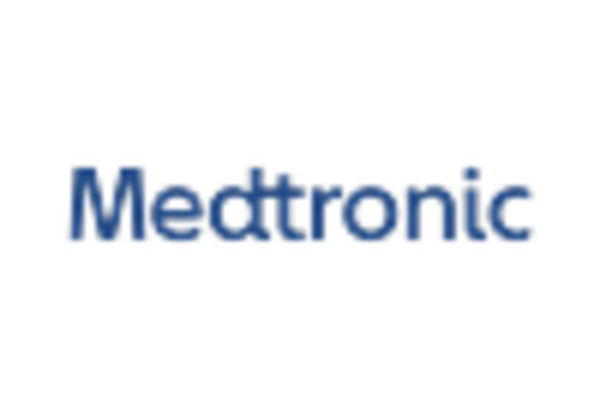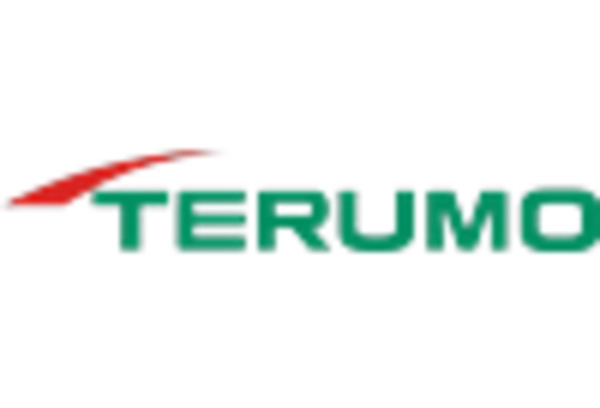Supportive Healthcare Policies
Supportive healthcare policies in Spain are fostering growth in the home infusion-therapy-devices market. The government has been actively promoting home healthcare initiatives, recognizing the benefits of reducing hospital admissions and associated costs. Policies aimed at enhancing patient access to home-based therapies are being implemented, which include reimbursement frameworks for home infusion services. This regulatory support is crucial, as it encourages healthcare providers to adopt home infusion therapies as a standard practice. As a result, the home infusion-therapy-devices market is expected to flourish, with increased investment in infrastructure and training for healthcare professionals. The alignment of policy with market needs suggests a promising future for home infusion therapies in Spain.
Growing Awareness and Education
Growing awareness and education regarding home infusion therapies are driving the home infusion-therapy-devices market in Spain. Patients and healthcare providers are increasingly recognizing the benefits of home-based treatments, including improved comfort and reduced healthcare costs. Educational initiatives aimed at both patients and healthcare professionals are crucial in dispelling misconceptions about home infusion therapy. As more individuals become informed about the safety and efficacy of these treatments, the demand for home infusion-therapy devices is likely to rise. Furthermore, healthcare providers are investing in training programs to ensure that staff are well-equipped to manage home infusion therapies effectively. This heightened awareness and education are expected to contribute positively to the growth trajectory of the home infusion-therapy-devices market.
Rising Demand for Home Healthcare
The increasing preference for home healthcare services in Spain is a pivotal driver for the home infusion-therapy-devices market. As the population ages, there is a growing need for chronic disease management, which often necessitates infusion therapies. Reports indicate that approximately 20% of the Spanish population is over 65 years old, leading to a surge in demand for home-based medical solutions. This demographic shift is likely to propel the market forward, as patients seek more comfortable and convenient treatment options at home. Furthermore, the cost-effectiveness of home healthcare compared to hospital stays is becoming increasingly apparent, making it an attractive alternative for both patients and healthcare providers. Consequently, the home infusion-therapy-devices market is expected to expand significantly in response to these evolving healthcare preferences.
Increased Focus on Chronic Disease Management
The rising prevalence of chronic diseases in Spain is a significant driver for the home infusion-therapy-devices market. Conditions such as diabetes, cancer, and autoimmune disorders require ongoing treatment, often involving infusion therapies. Recent statistics suggest that nearly 30% of the Spanish population suffers from at least one chronic condition, necessitating effective management strategies. Home infusion therapy offers a viable solution, allowing patients to receive necessary treatments in the comfort of their homes. This shift not only enhances patient quality of life but also reduces the burden on healthcare facilities. Consequently, The home infusion therapy devices market is expected to experience robust growth as healthcare systems adapt to meet the needs of this growing patient demographic.
Technological Innovations in Infusion Devices
Technological advancements in infusion devices are transforming the home infusion-therapy-devices market in Spain. Innovations such as smart infusion pumps, which offer enhanced accuracy and safety features, are gaining traction among healthcare providers and patients alike. These devices often come equipped with wireless connectivity, allowing for real-time monitoring and data sharing with healthcare professionals. The integration of mobile applications further enhances patient engagement and adherence to therapy regimens. As a result, the market is projected to grow at a compound annual growth rate (CAGR) of around 8% over the next five years. This trend indicates a strong inclination towards adopting advanced technologies that improve patient outcomes and streamline the infusion process, thereby driving the home infusion-therapy-devices market.


